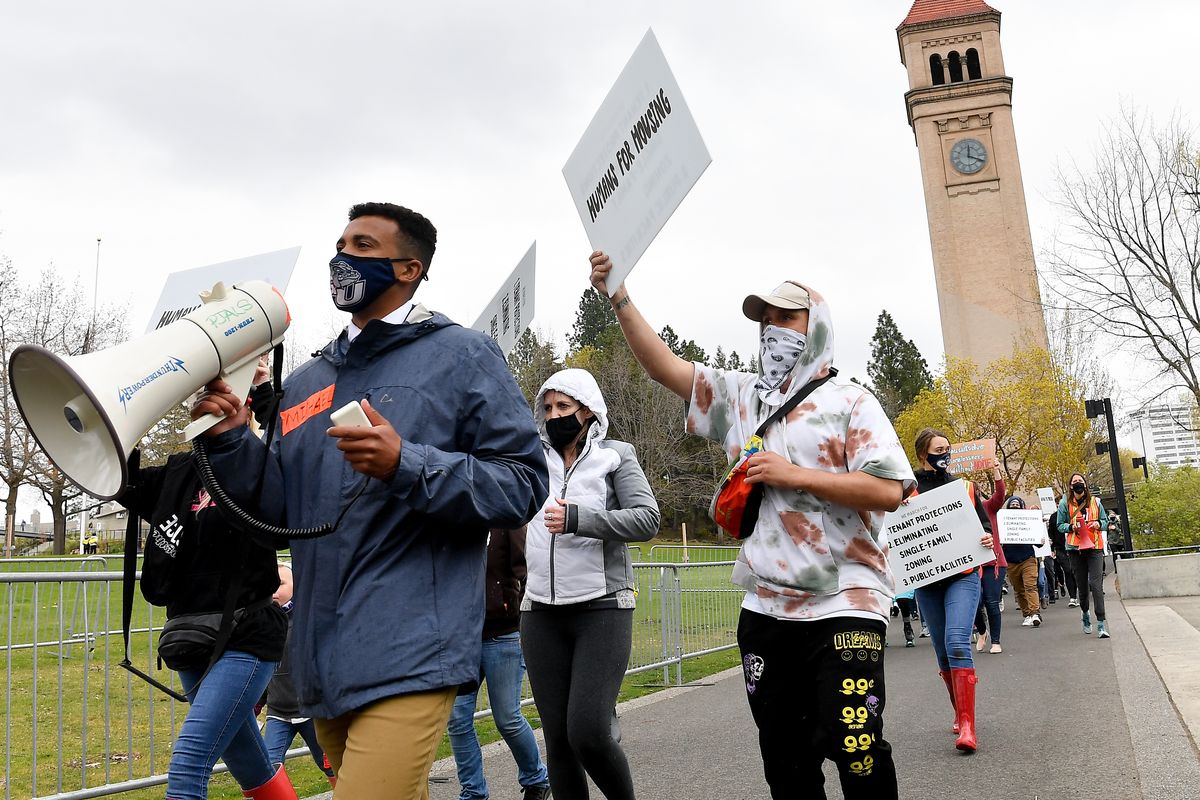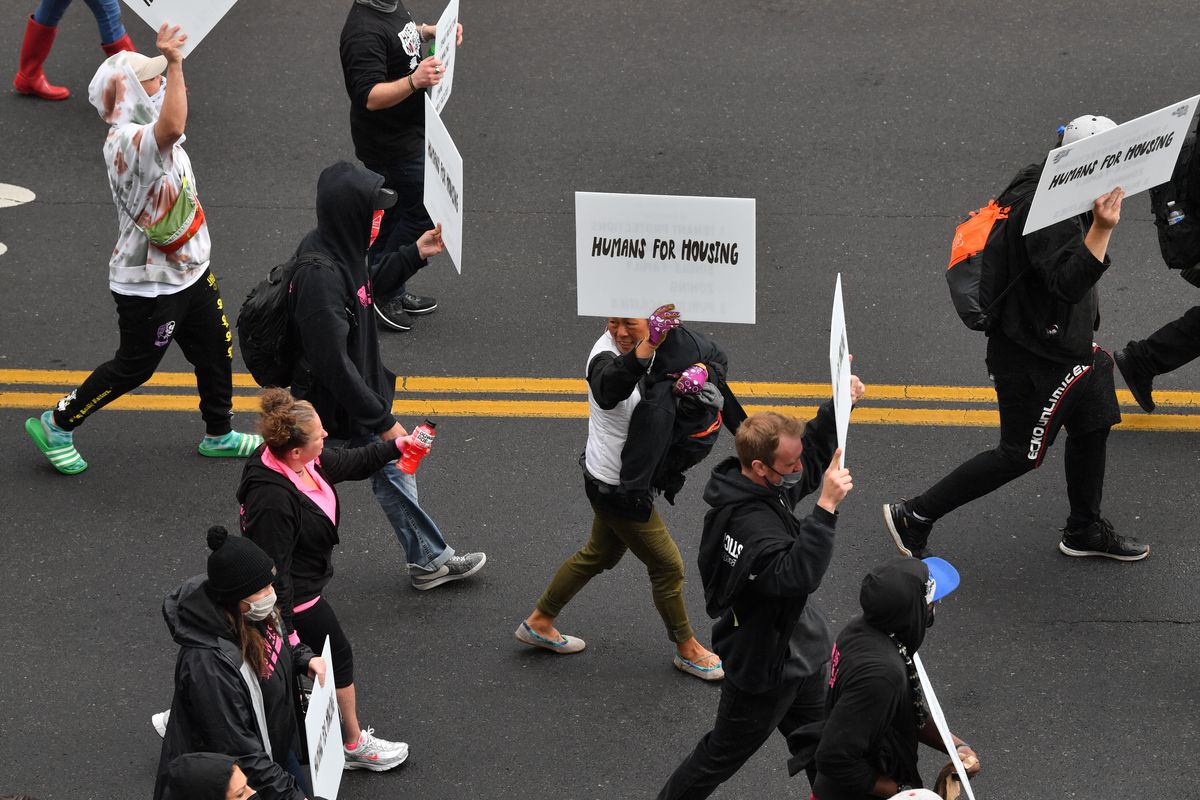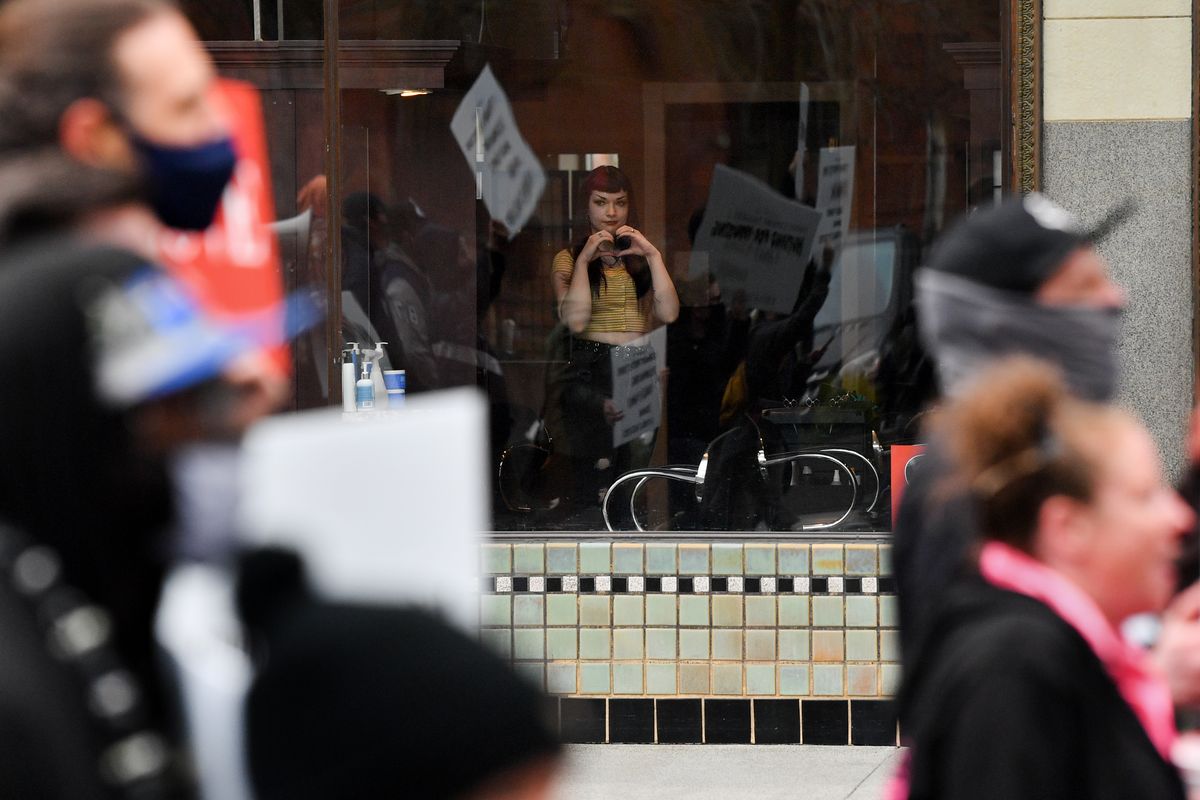‘The legacy I want to see for Spokane’: Hundreds gather to advocate for housing, public restrooms

Hundreds gathered in the Lilac Bowl at Riverfront Park Saturday to march for demands that protesters said would reduce homelessness in Spokane.
A woman inside Bliss Hair Studio gestures to marchers as they pass on Saturday during a Humans for Housing march held by Humanizing Spokane. (Tyler Tjomsland/The Spokesman-Re)
Tents lined up along the river for speakers as light rain fell on the crowd. At one tent, 150 sack meals waited for anyone in need of food.
Humanizing Spokane, a movement started by Gonzaga University students, organized the Humans for Housing march that outlined three priorities for Spokane: implementing tenant protections, eliminating single-family zoning and creating public facilities.
Amid some drizzle, the group marched a mile and a half through downtown Spokane, carrying posters with their three demands.
Leila Lewis, emcee for the event, said single-family zoning creates expensive housing while the city is in great need of more duplexes and apartments to serve low-income residents.
“The mission of this movement is to advocate for the end of homelessness in Spokane,” Lewis said. “We believe no person can be separated from their inherent and infinite worth.”
Maurice Smith, a documentary filmmaker who has made six films exploring homelessness in Spokane, spoke first at the event. He warned that the end of the COVID-era eviction moratorium will multiply Spokane’s homeless population.
Smith said affordable housing should be a top priority for the city. In the meantime, he said he plans to keep documenting homelessness “from now until Jesus calls me home.”
Tying into demands for more accessible restrooms, Joan Medina of Stop the Sweeps Spokane, a group against criminalizing homelessness, said many Spokanites with homes don’t realize how many offenses police can cite to break up homeless camps, including human waste laws that apply to urine in closed containers.
“The city is not providing toilets for people but people have to go,” Medina said. “They have to go somewhere.”
Speakers Angel Tomeo-Sam and Hallie Burchinal of Compassionate Addiction Treatment Organization both experienced homelessness. Tomeo-Sam was homeless with her children for six years in Spokane, she said. Without the help of nonprofits, she said it would’ve been impossible to climb out of homelessness.
Burchinal became homeless as a teenager in the 1980s, after moving out and supporting herself at age 16. When her employer banned her from work for two weeks over her punky style of dressing, she lost her apartment.
Burchinal slept on a warm grate where the parking garage for The Spokesman-Review now stands. Burchinal said she had never tried a drug before becoming homeless. She was raped while living on the streets before ever experiencing consensual sex.
Burchinal’s escape from the streets was her unplanned pregnancy. Having had little access to resources as a homeless teen, she now qualified for welfare and could afford an apartment, she said.
“I think I’m telling you this because people have so many perceptions about how you become homeless – about who you are, what you must have done wrong to get there,” Burchinal said. “I know that’s not something people are comfortable hearing, but that’s the reality of homelessness. We are unprotected, we’re alone and we’re targeted.”
Tomeo-Sam, a Colville tribal member, said her grandfather told her stories of fishing on the Spokane River decades ago. She pointed to the river behind her and said, on any given April day, there would be countless Native Americans lined up along the riverbanks fishing.
“Anybody could fish – it didn’t matter where you were from,” Tomeo-Sam said. “They would take the fish and put them in these giant piles and then at the end of the season they would split everything up, portion everything out equally. No matter what you pulled out of the river, you went home and were able to take care of your people. That’s the legacy I want to see for Spokane. That’s what we did before.”
Editor’s note: This story has been updated with the correct spelling of Gonzaga student Leila Lewis’s name.


